NAPA VALLEY, Calif. — These are the weeks of spring family gatherings, filled with reasons to celebrate: My lilacs have bloomed, my peach trees have small peaches and there are new goats at the farm near the end of my street. Also worth celebrating: I really do like my family, all of them.
My children, Sam and Ariel, are great and happily married to wonderful spouses. Sam has a year-old son, so delightful he can make the sun rise at midnight (when he is often up, I hear). Beyond this, I have three sisters. We are all as different as we could be, yet we all like each other and each one’s extended family, too. We enjoy family gatherings. Is this a miracle? It is something I came to ponder last fall when I embarked on a road trip in the United Kingdom with a group of friends that included four other sisters.
“They’re French."
I should preface this tale by mentioning that I love France. I have lived there joyfully. I love the language, the food, the culture, the landscape and yes, the people. This is important because I would not want the tale I am going to relate to be taken as a negative reflection on this great nation, except that I found myself frequently offering up, as a feeble explanation to Brits who were outraged by the antics of these four sisters: “They are French, you know.”
To the Brits, this seemed to explain a lot.
Individually, these lively sisters are immensely likable and somewhere in their late 70s and early 80s still living adventurous lives. Put into a group, however, their presence becomes intensified by more than a factor of four. Things happen. Also, they do not always — how does one put this delicately? – get along.
This I had learned the year before, when my travel agent friend, Flo, organized a trip to walk the Camino de Santiago in Spain (only the last week’s worth, not the whole thing). The four sisters, who live in various parts of the United States but are all friends of Flo, signed on.
Our first night on the trail one sister sat apart from the group at dinner because she did not want to be at the same table as her sisters. We learned that two of them had not talked to the other two for 20 years. It appeared this would continue during the walk, although who was not talking to whom on any particular day seemed to be in constant flux.
But the Camino is a walk that is reputed to have spiritual powers, and by the journey’s end, I could almost believe it because we came into Santiago de Compostela, all the sisters were getting along. It could also have been the effect of walking 15 or more miles each day, each at one’s own pace and often alone and by evening being too tired to expend energy being mad at one sister or another. We all sat at one table.
The newly reconciled sisters decided to sign up for Flo’s next trip. This was going to be a driving tour of Wales, where my daughter, Ariel, had moved after her marriage. Flo had hatched a plan: We would rent two SUVs, and Douglas, Ariel’s husband, would drive one because, being a native (he is from Scotland but lives in Wales), he would be used to driving on the “wrong” side of the road.
And the other driver, she decided would be me. She knew that I, too, could drive on the left side of the road because on a more recent trip she had arranged our rental car. “If you do it,” Flo said, “I will use my miles to buy your plane ticket.”
I always drive the smallest car possible in Europe, I pointed out. I had never in my life driven an SUV anywhere.
“Couldn’t I just buy my own ticket and not drive?” I asked.
No. No one else in the group had ever driven in the United Kingdom, and no one wanted to try.
How about we hire a driver and a bus?
No. Too expensive. (Flo loves to save money.)
The trip started out well enough; the four French sisters all opted to ride in the SUV with the handsome Scot, not the anxiety-ridden writer. There, according to my daughter, they provided entertainment by telling Douglas how to drive and which way to turn, each with a differing opinion and direction.
Fortunately for his sanity, the family unity ruptured after one day. I think it was a matter of a scarf but was never quite sure. The following day the sisters separated into two cars, and this continued for the next 10 days, with who sat where varying, depending on who was mad at whom. For the most part, the ones in my car helped pass the hours on the road by describing the regrettable madness of the other sisters but also telling amusing tales and singing songs in French. The most unusual one turned out to be ironically prophetic; it was about peeing into the wind.
This is a point worth noting: SUVs may be all right on the M4 motorway, but they are not made for narrow roads through charming villages where people park on the street and the road is about wide enough for a skateboard. Nor are they made for single-track roads in the beautiful countryside, bound on either side by hedges and sheep. Nor are they made to fit into any parking place in the country.
Say no more — except, it was when we had managed to fit the monstrous cars, with a hair-raising effort, into two or three parking spaces that the sisters were united again and fell into mischief. Some incidents were minor, such as when they nicked a cider-maker’s apples. (“I am so sorry. They admired your apples. They’re French.”) Or the time they filled their backpacks with the entire supply of croissants at breakfast. (“I am so sorry. You don’t usually find such wonderful croissants in Wales. They’re French.”)
But then came the incident at Cardigan Castle.
Douglas and I were late in joining the party because we had to park the SUVs in the castle parking lot, accessed by a very narrow gate that had been designed for knights on horses. Douglas managed to squeeze the behemoths through the passage without mishap; I had planned to leave my car in the street and hope someone stole in in the night.
When we arrived at to the castle hotel, we were met by the anxious manager.
“Three of the ladies are trapped in the elevator,” he said. This had never happened in the 10 years he had been at the hotel. “The sign says, ‘Push the button and hold,’” he explained. Instead, the passengers had pushed the button 14 times, after which the computer had gone into a tizzy and stopped between floors. “No one has ever done this.”
We could see through the glass, three of the four French sister, stuck between the first and second floors. The fourth sister was outside in the hallway, expounding her theories on who had been the idiot that hit the button 14 times. “I know who. She has no patience. Too bad we can’t just leave her in there.”
The other three, however, were getting along fine. They had a bottle of wine, a baguette and cheese in their packs and no doubt the cider-maker’s apples and the other hotel’s croissants. They sat on the floor and feasted while Douglas and the manager, who had only one arm, had to manually work a crank to move the elevator, 1 centimeter at a time, to reach the lower floor and release the sisters.
“Is it possible to call the fire department?” I asked. Apparently, it was not; British visitors were not in the habit of upsetting the elevator.
“Fourteen times,” the manager murmured.
“They’re French.”
At length the trip was nearly over, and we headed east toward England and Heathrow Airport. Douglas wanted to swing by a laundry near their home in Llanelli, Wales, to drop off some clothes that he and Ariel would then pick up, washed and folded, after leaving everyone at the airport and turning in the SUVs (at last). I believe he also might have wanted to show off his bride, who speaks fluent Welsh, to the Welsh-speaking launderess. We all went inside with their clothes.
“Ask,” one sister prompted Ariel, “if they have a bathroom.”
Ariel complied. The woman replied, in English. “I am sorry, no, not for the public.”
The French sisters departed. A moment later, the woman looked out the window and shrieked. “They are peeing in my yard!”
There followed an exchange, which I feared would reignite the Hundred Years’ War between France and Great Britain.
“This, I cannot believe! To pee in my yard!”
“To what?”
“To pee in my yard!”
“It is what we do in France.”
“France!”
“They are French.”
“France! Who brought them here? To pee in my yard! This is a civilized country! We don’t pee in yards!”
“Oh, god,” Ariel said, “and we already left our laundry. We’ll probably get it back burned full of holes.”
We made it to the airport, where we parted ways. “And next year,” one of the sisters said, “maybe we shall all go visit your son in Los Angeles!”
“I will tell Sam,” Douglas said.
I plan to return to Wales, a beautiful country full of castles, cottages and sheep, of stunning landscapes, a great many potatoes — chips as they call them, and, yes, French fries, as we do — and friendly people, as long as one does not pee in their yard. I doubt I will ever drive an SUV anywhere again — I would rather put a fork in a filling, as the late, great reporter Pierce Carson once wrote — but I will go back to Wales.
Back to my three sisters: I tried imagining what it might be like to travel with them in one car through a foreign land. And the more I thought about it, for some reason, I could hear apologetic voices murmuring, “I am so sorry. They do these things. They are Americans.”
Should you be wondering, the laundry came back just fine.
—
Sasha Paulsen is a Napa Valley-based novelist and journalist.
Poems of the Day
CRHYMES COMMITTED + JUDYISMS
By Judy Fishman
God Loves Me That coffee has no calories is proof that God loves me The lure of chocolate remains His worst joke On the other hand, laughing burns fat And I can buy egg whites without the yoke Fractured His rhymes are not flawless He misses by far His style is lawless Close but no cigar JUDYISMS: When you give your bike to your younger sibling is that recycling? The king said to the fat man, "Kneel down. I knight you Circumference." Where's your dough when you knead it? French lawn mowing service: à la mowed Bathroom deodorizer - air to the throne Breakfast menu - Oat cuisine Pottery shop - The Wizard of Vase Euphemism is another word for another word The whole is greater than some of its parts Babies give you a microwave I never let reality get in the way of my optimism
About the Author: Judy Fishman lives in Sherman Oaks, California, and delights in wordplay, rhyme and clever turns of phrase. Though she doesn’t consider herself a poet, she’s an avid creator of what she calls “Judyisms” — short, witty lines that straddle the line between pun and punchline. Her husband, Gary Fishman, was a longtime wine buyer at Wally’s Wine & Spirits in Los Angeles and is now a photographer. Judy sometimes “borrows” his “Napa Valley Features” subscription — “There’s always something interesting going on,” she said. “Words are my favorite toy.”
Are you a poet, or do you have a favorite piece of verse you'd like to share? Napa Valley Features invites you to submit your poems for consideration in this series. Email your submissions to napavalleyfeatures@gmail.com with the subject line: "Poem of the Day Submission." Selected poets will receive a one-year paid subscription to Napa Valley Features (a $60 value). We can’t wait to hear from you.
Today’s Caption Contest
Pick your favorite caption or add your own in the comments below.
Possible Captions:
“Turns out, the tide within is the hardest to navigate.”
“Heidegger never had to deal with current anxiety.”
“I’m too self-aware to bob naturally.”
“Water? What’s water?”
“I'm not sure if I’m suspended ... or just avoiding commitment.”
Last week’s contest results
In “Sunday E-dition: What Remains – An Easter Story,” the winning caption was, “The orange blossom batch from '02? You can taste the rainfall,” with 43% of the votes. We also had a submission from reader Dan Dawson, “I had the fly beat if it wasn't for the damn skimmer.”
"The orange blossom batch from '02? You can taste the rainfall."
"I used to fly for joy. Now I just fly for rent."
"I don’t want to talk about the chocolate bunny incident."
“The queen says I’m ‘too sensitive’ — like that’s a bad thing.”
“I keep dreaming about wax. Is that normal?”
Last Week
Tim Carl reflected on memory, war and tradition in "What Remains – An Easter Story," recounting a moment aboard a U.S. Navy ship during Operation Praying Mantis in 1988. As he stood at the helm in a tense combat zone, the scent of citrus unexpectedly evoked vivid memories of Easter in Napa Valley and childhood visits to the Napa Valley Olive Oil Manufacturing Co. The story weaves together the sensory power of food with the emotional weight of service and the longing for home. Through these recollections, Carl illustrated how small details — a bite of bread, a familiar smell — can anchor us amid chaos. His piece explored the enduring connections between past and present, war and peace.
Master Gardener Rainer Hoenicke explained how rising temperatures, reflected in the USDA’s updated Plant Hardiness Zone Map, are making it possible to grow avocados in parts of Napa Valley. In "Changes in Climate Make Avocados in Napa Possible," Hoenicke highlighted the shift from Zone 9a to 9b and discussed how certain Mexican avocado varieties, such as Mexicola Grande and Lila, now thrive in areas that once experienced prohibitive frost. He detailed the health benefits of avocados and their long history of cultivation, dating back over 7,000 years. Hoenicke also noted his personal experience with growing avocados and offered practical tips for increasing fruit yield. The article pointed toward a future where avocado orchards may become more common in Napa.
Tim Carl examined Napa Valley’s rising winery license numbers in "Under the Hood: As Wineries Close, Napa’s License Count Surges," despite national industry contraction and falling grape yields. While hundreds of Type 02 licenses briefly disappeared due to missed renewal deadlines, Napa quickly rebounded and now holds a record 28.1% of California’s winery licenses, even though it produces only 4% of the state’s wine. Carl explained that this growth reflects brand positioning rather than production increases, as many licenses are held by virtual labels and brand extensions. The trend points to a market increasingly defined by branding over farming. Napa’s license surge contrasts with closures elsewhere, underscoring a structural shift in how wine businesses approach market presence.
Guest contributor Anna Brittain previewed the return of the RISE Climate & Wine Symposium in "RISE Brings Focus on Sustainability and Climate Resiliency to Napa,” detailing the six-event series organized by Napa Green. The symposium, beginning April 29, brings together more than 65 global experts to share practical solutions around sustainability, climate resilience and regenerative farming. Topics range from water efficiency and soil health to diversity, climate action and waste prevention, with events anchored by keynote speakers and critical forum questions. Brittain emphasized the tangible impacts of past symposiums, such as herbicide-free farming trials and biochar use. The event aims to support the wine industry and broader community in navigating sustainability challenges through collaboration and innovation.
Dan Berger critiqued the American wine market’s preference for bold, high-scoring reds in "Dan Berger Wine Chronicles: A Taste of the Soil," arguing that true wine quality stems from regional identity rather than power or extract. Using a blind tasting of a hyped Napa merlot as an example, he highlighted how inflated scores often overshadow flaws and mask the absence of terroir. Berger lamented the decline of site-specific expression in U.S. wines, contrasting this with European traditions and spotlighting domestic regions such as Coombsville and the Petaluma Gap that still reflect their origins. He praised producers focused on nuance and balance over intensity. The piece concluded with a review of a Napa Valley semillon made in the restrained style of Australia's Hunter Valley.
—


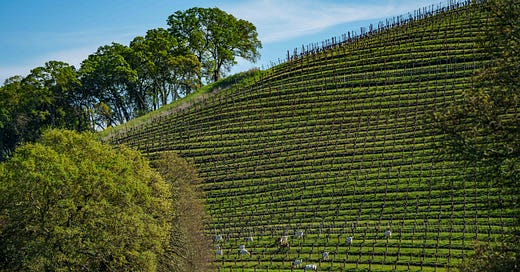


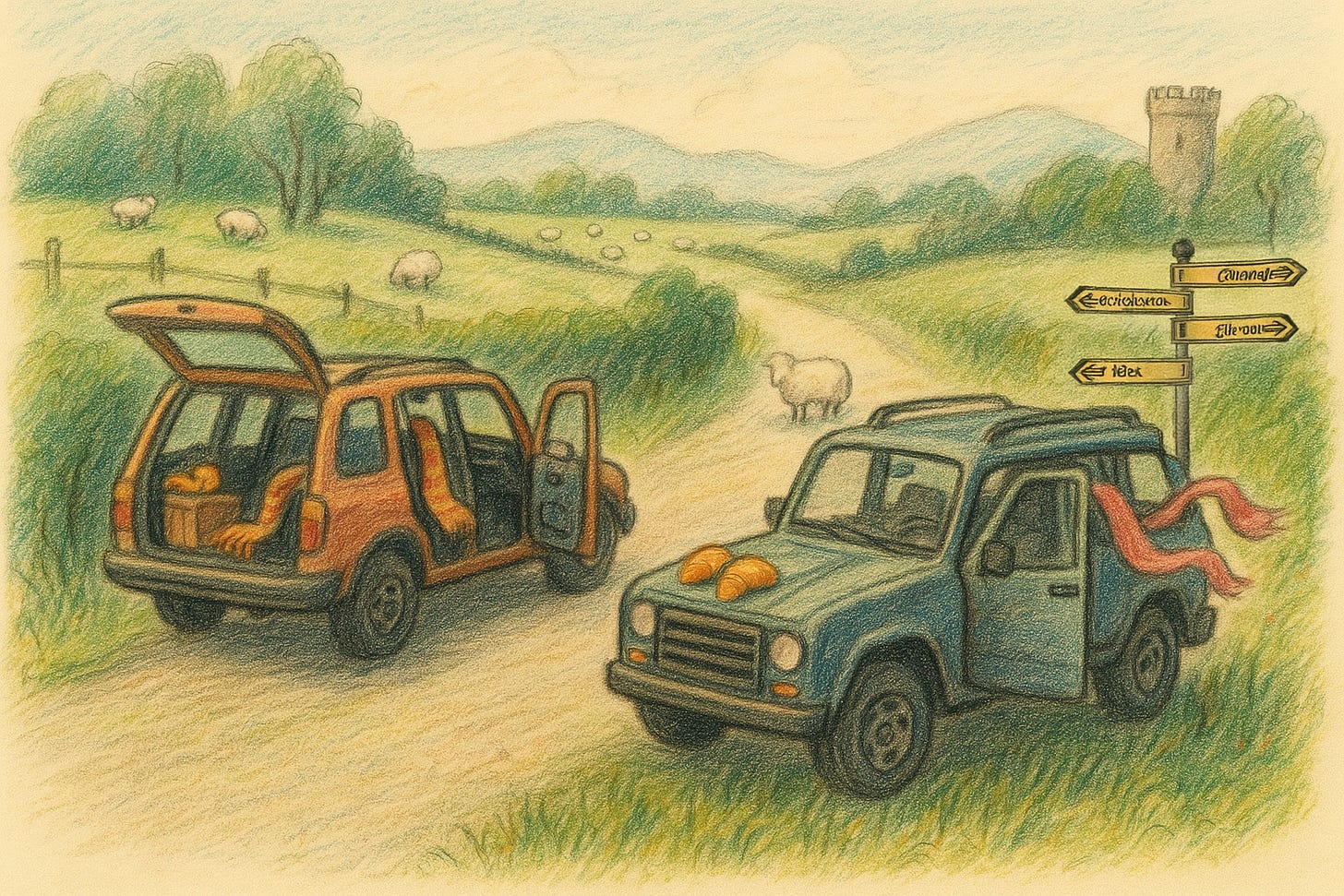
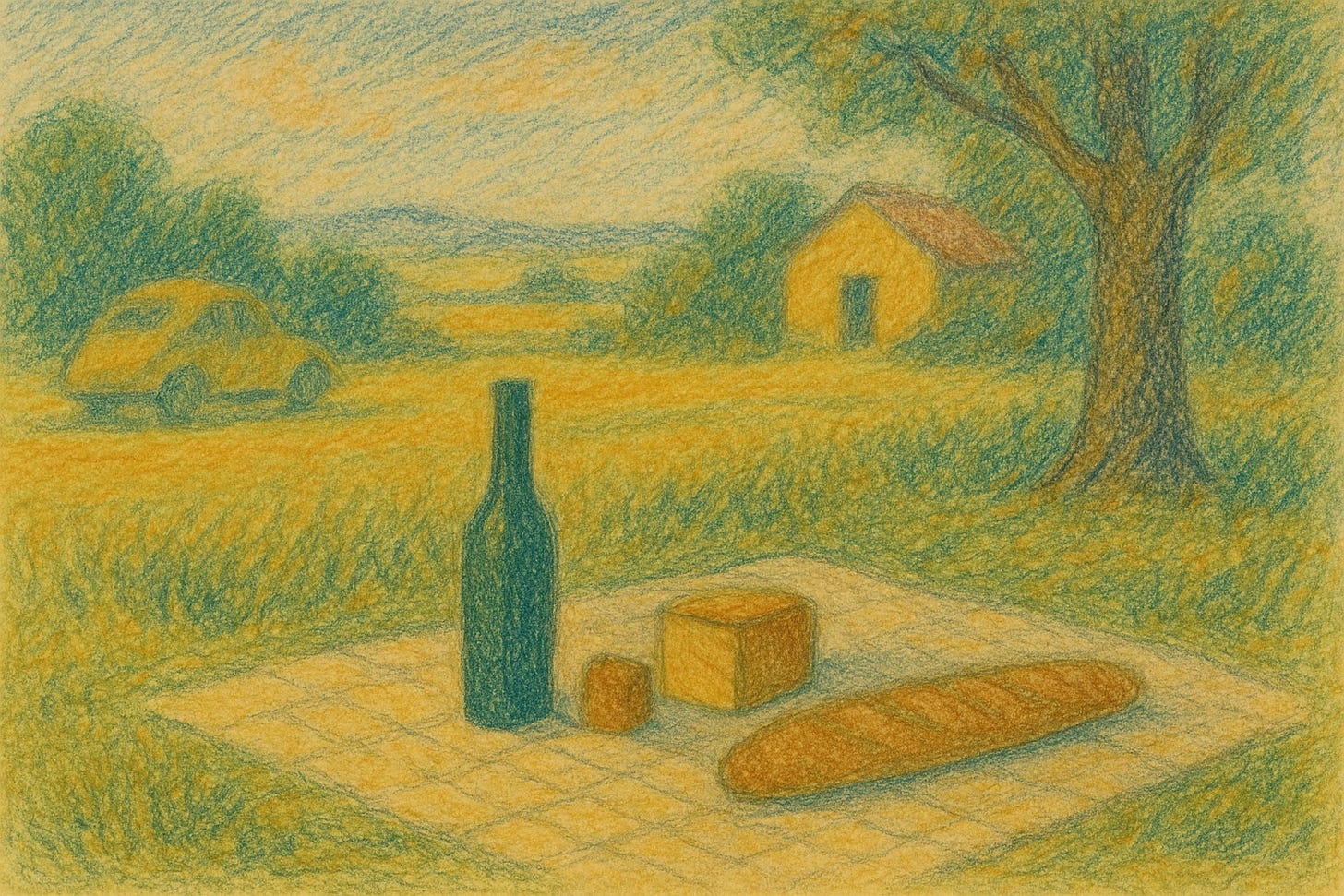
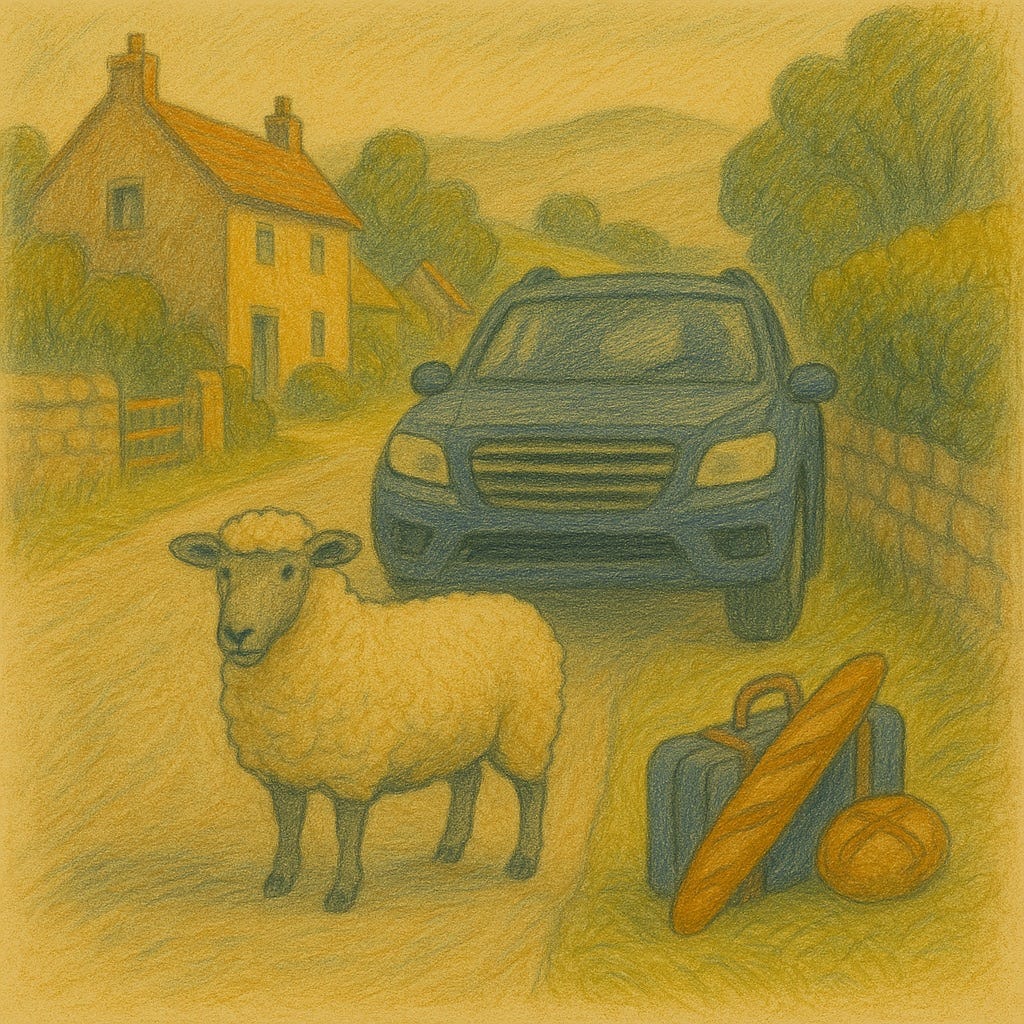
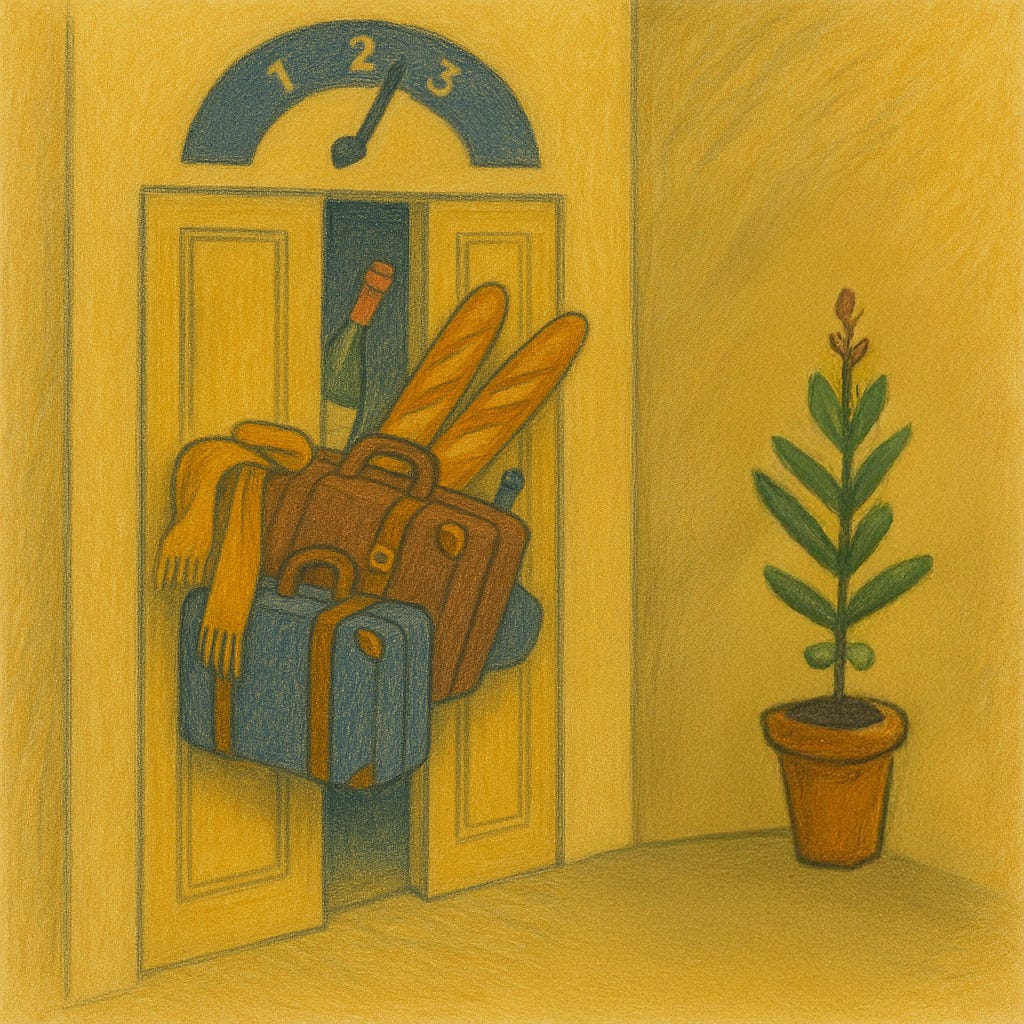
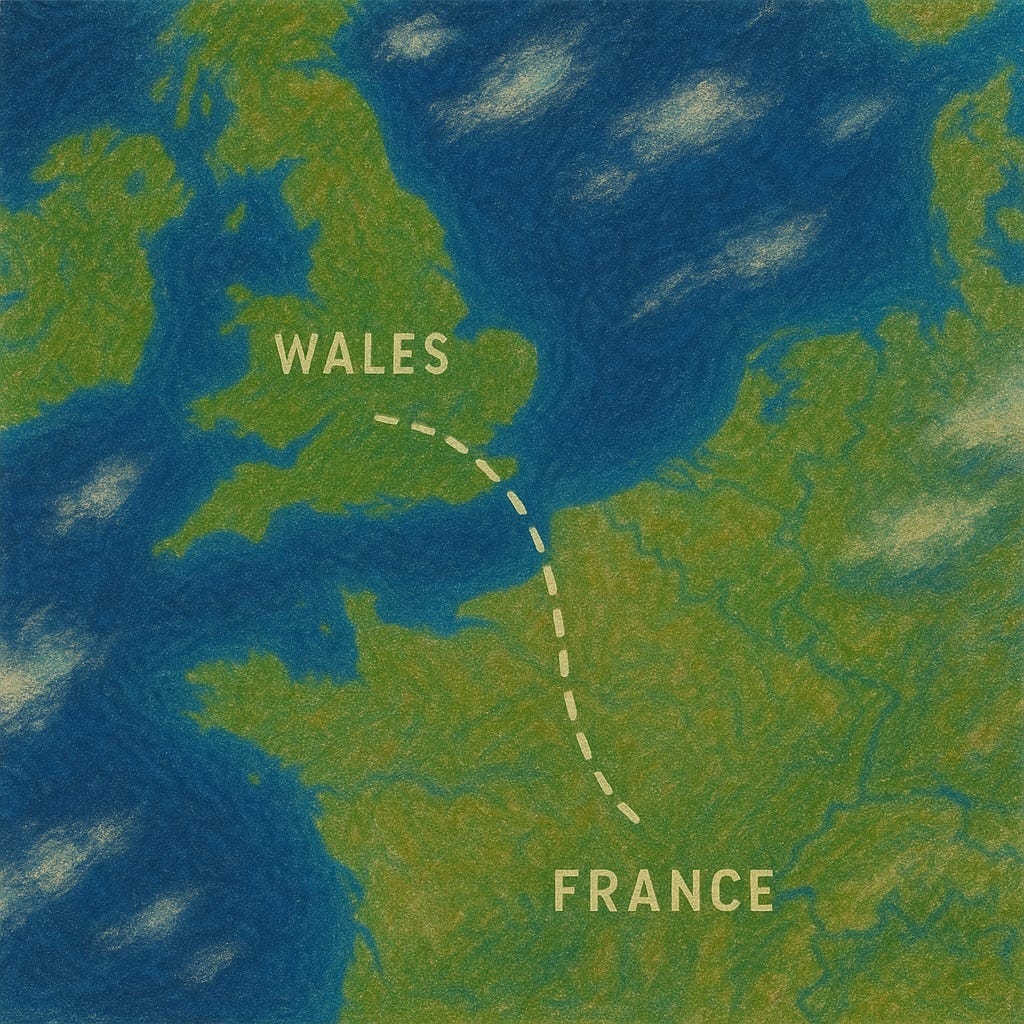
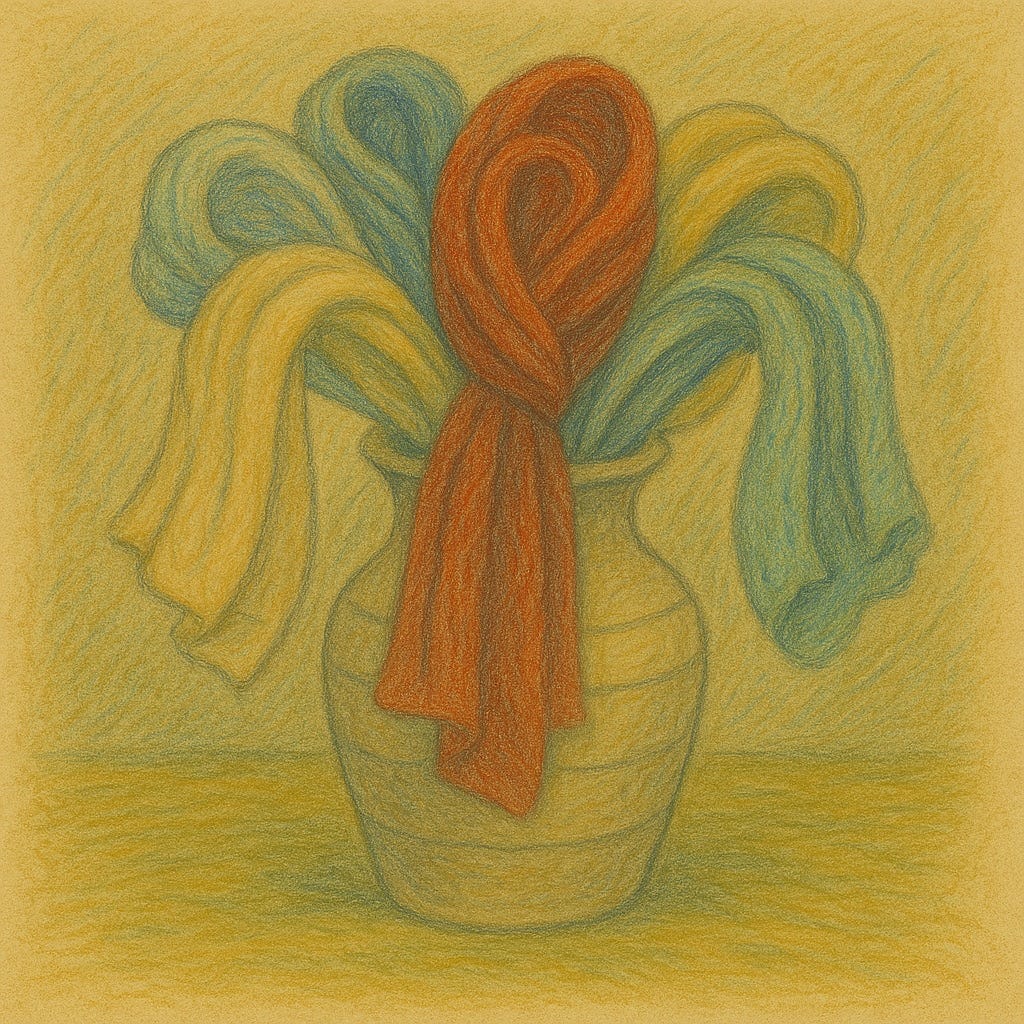
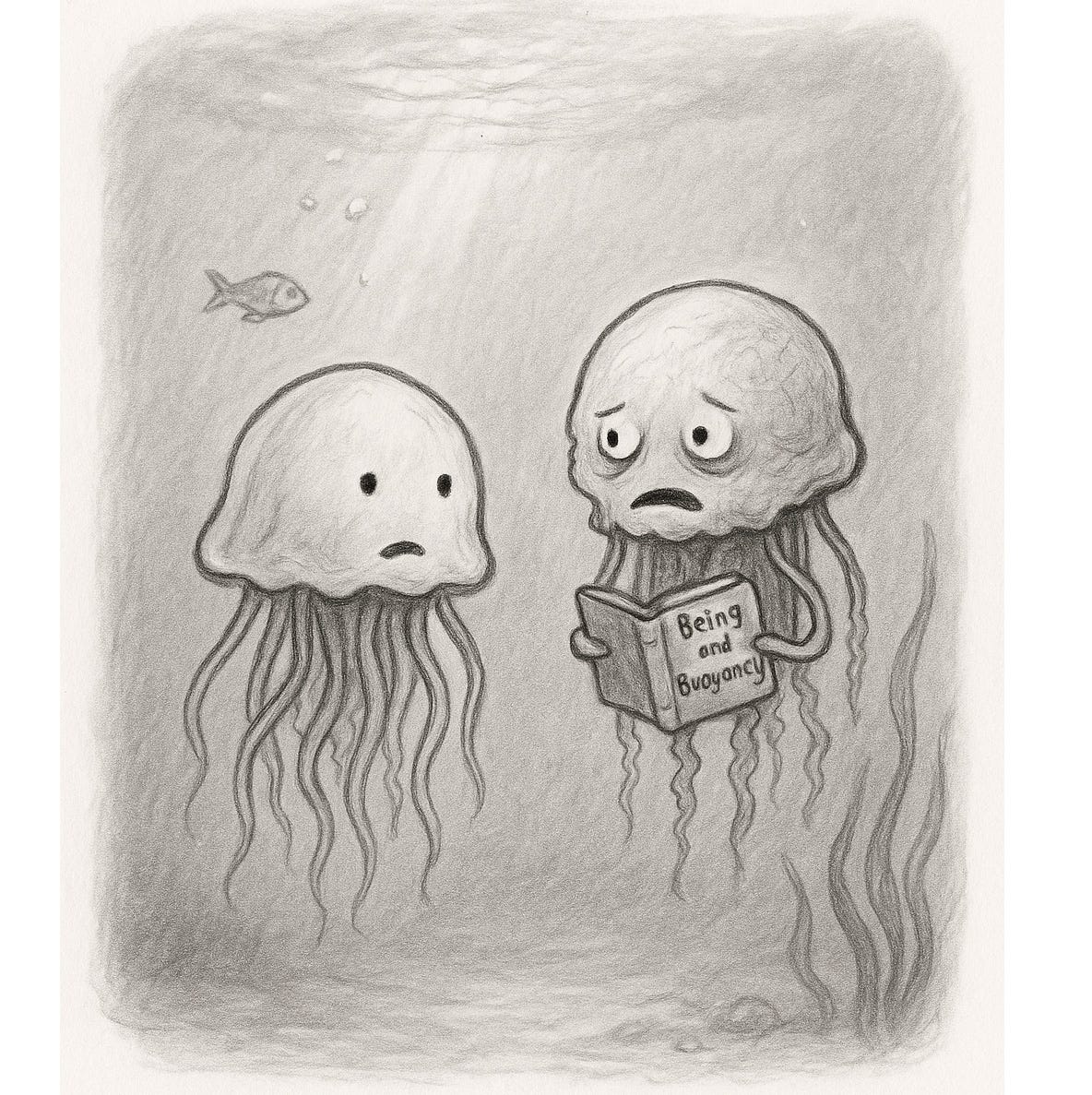
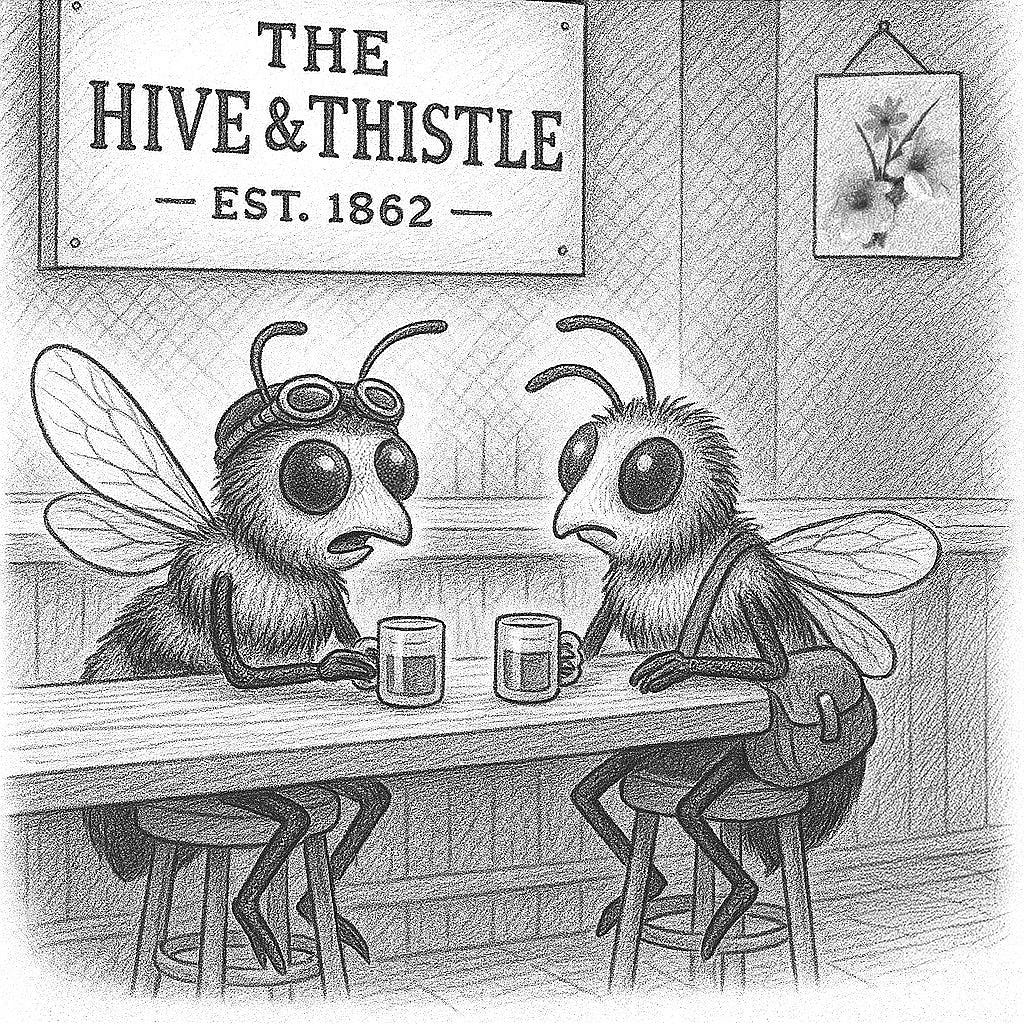
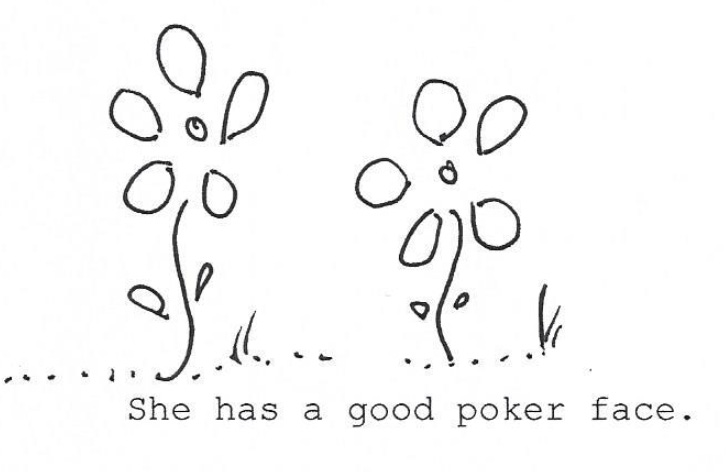
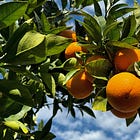

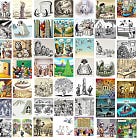

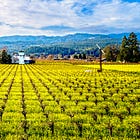
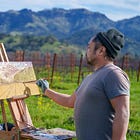

Bravo Sasha. Good for several chuckles out loud. And a quick, much appreciated, memory of Pierce Carson, with whom I worked briefly at the Napa Register. Once again, a great read to start the day.
Doug
AS usual, beautifully written. I've met a couple of the sisters...and heard more stories about them, but the Wales adventure in the yard was a new one - I can just picture it. Not only would I not drive an SUV, I would hesitate to travel in confined spaces with 'interesting' people.